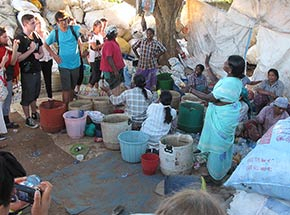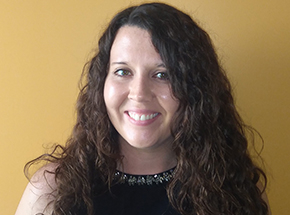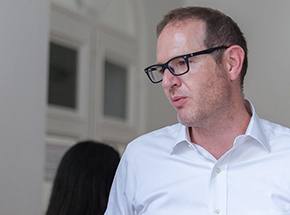- About AUP
- History of AUP
- Mission & Core Values
- Vision and Leadership
- AUP Recognition
- Alumni Success
- Campus Development
- Arts at AUP
- Policies & Guidelines
- Academics
- Undergraduate
- Graduate Programs
- MA in Diplomacy and International Law
- MA in Global Communications
- MSc in Human Rights and Data Science
- MA in International Affairs
- MA in International Affairs, Conflict Resolution, and Civil Society Development
- MSc in International Management
- MSc in Strategic Brand Management
- Find Your Thesis Advisor
- Previous Programs
- Cultural Program
- Faculty
- Summer School
- Research Centers
- The Center for Critical Democracy Studies
- The Center for Writers and Translators
- The George and Irina Schaeffer Center for the Study of Genocide, Human Rights and Conflict Prevention
- The Joy and Edward Frieman Environmental Science Center
- The Center for Media, Communication & Global Change
- Departments
- Academic Resources
- Academic Affairs
- Academic Calendar
- Academic Resource Center
- Library
- Registrar's Office
- Teaching and Learning Center
- Employer Network
- Accessibility & Accommodation Services
- Quai D'Orsay Learning Commons
- Paris as Classroom
- ACE Center
- Admissions
- Student Life
- Campus
- Student Leadership & Involvement
- Paris
- Support Services
- Student Development Help Desk
- Student Accounting Services
- Student Immigration Services
- Student Grievance Procedure
- Diversity and Inclusion
- Health & Well-being
- Digital Student Handbook
- News
- Events
- AUP Giving
- Housing Offer for 2024-2025
- Housing | Spring 2024
- IRIS Project
- IT Services
- Alumni
- About AUP
- History of AUP
- Mission & Core Values
- Vision and Leadership
- AUP Recognition
- Alumni Success
- Campus Development
- Arts at AUP
- Policies & Guidelines
- Academics
- Undergraduate
- Graduate Programs
- MA in Diplomacy and International Law
- MA in Global Communications
- MSc in Human Rights and Data Science
- MA in International Affairs
- MA in International Affairs, Conflict Resolution, and Civil Society Development
- MSc in International Management
- MSc in Strategic Brand Management
- Find Your Thesis Advisor
- Previous Programs
- Cultural Program
- Faculty
- Summer School
- Research Centers
- The Center for Critical Democracy Studies
- The Center for Writers and Translators
- The George and Irina Schaeffer Center for the Study of Genocide, Human Rights and Conflict Prevention
- The Joy and Edward Frieman Environmental Science Center
- The Center for Media, Communication & Global Change
- Departments
- Academic Resources
- Academic Affairs
- Academic Calendar
- Academic Resource Center
- Library
- Registrar's Office
- Teaching and Learning Center
- Employer Network
- Accessibility & Accommodation Services
- Quai D'Orsay Learning Commons
- Paris as Classroom
- ACE Center
- Admissions
- Student Life
- Campus
- Student Leadership & Involvement
- Paris
- Support Services
- Student Development Help Desk
- Student Accounting Services
- Student Immigration Services
- Student Grievance Procedure
- Diversity and Inclusion
- Health & Well-being
- Digital Student Handbook
- News
- Events
- AUP Giving
- Housing Offer for 2024-2025
- Housing | Spring 2024
- IRIS Project
- IT Services
- Alumni
Related Links
Study Trips
The Netherlands
Consulting Methods and Sustainability
Related Graduate Programs :
This intensive study trip, titled “Navigating Climate Change: The Netherlands as a Global Test Case,” offered an in-depth overview of sustainability management by businesses, NGOs, and public policy bodies in the Netherlands to climate change and other human impacts on the environment. Students explored test cases, in a highly developed country, of possible reactions to emergent, complex situations caused by climate change and other environmental and social impacts of human activities.
The Netherlands is the lowest part of Europe and has for centuries been protected by an impressive body of knowledge about water management. Anthropogenic climate change poses an unprecedented challenge for the future of the country, which largely consists of a river delta, due to sea-level rise, atmospheric rivers and extreme weather. The Netherlands is considered a test case and highly representative of the other 40 or so river deltas worldwide, which are home to over half of the world's population. One thing is clear: the country urgently needs to rethink its climate policies and practices.
Students met with high-ranking experts in these sectors offering insights into the latest environmental solutions and management practices, specifically through three intensive workshops organized by host organizations. Firstly, The Netherlands Environmental Assessment Agency (PBL), which is the national institute for strategic policy analysis in the fields of the environment, nature and spatial planning. They contribute to the quality of political and administrative decision-making by conducting outlook studies, analyses and evaluations in which an integrated approach is considered paramount.
Secondly, students visited Avebe, which is a cooperative of some 2,300 starch-potato growers in the Netherlands and Germany. Avebe is the world market leader in the field of potato starch and potato protein and focuses on the production of high-quality food ingredients by using modern, innovative techniques. Avebe's expresses its ambition, in the context of the circular economy, to turn waste into food with a leading strategic question: What does market-oriented potato cultivation and the reduction of the ecological footprint mean in practice?
The third workshop was organized around sustainability issues relating to energy and food in a village community in Friesland. Students explored how a small engaged community is acting on climate change challenges.
Following these visits, students worked in different teams to produce recommendations for the strategic questions posed by our three host organizations. They developed and presented possible strategies and frameworks for management and staff in a meeting that occurred during their final exam period.
Related
-

MSIM in India
Featured Course
Read MoreMSIM in India
Featured Course
The Sustainable Development Practicum in Auroville, India, pairs an academic understanding of sustainable development with hands-on experience working with...
-

Natalie Cassedy '17
Alumna
Read MoreNatalie Cassedy '17
Alumna
My journey at AUP helped to kick-start my career.
-

Professor Earhart
Faculty
Read MoreProfessor Earhart
Faculty
I still occasionally take consulting gigs, and I usually target projects that are related to my research areas or offer opportunities for student involvement.




